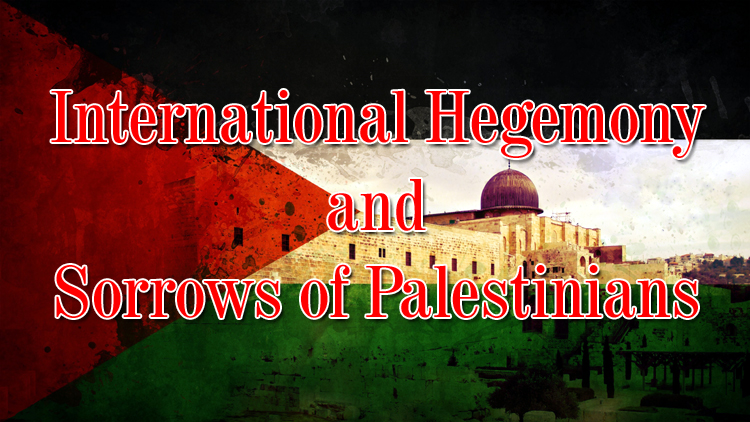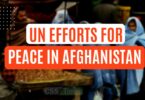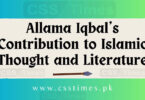International Hegemony and Sorrows of Palestinians
Palestine pledge called for international protection through OIC.
Leaders of Muslim nations have called for an international force to protect Palestinians, following the killing of more than 60 protesters by Israeli forces in Gaza.An extraordinary summit of the Organization of Islamic Cooperation in Istanbul voiced determination to take action against countries moving embassies to Jerusalem, as the US has done.
The Israeli–Palestinian conflict is the ongoing struggle between Israelis and Palestinians that began in the mid-20th century.The origins to the conflict can be traced back to Jewish immigration, and sectarian conflict in Mandatory Palestine between Jews and Arabs.It has been referred to as the world’s “most intractable conflict”, with the ongoing Israeli occupation of the West Bank and the Gaza Strip reaching 51 years.
Many attempts have been made to broker a two-state solution, involving the creation of an independent Palestinian state alongside the State of Israel (after Israel’s establishment in 1948). In 2007, the majority of both Israelis and Palestinians, according to a number of polls, preferred the two-state solution over any other solution as a means of resolving the conflict.Moreover, a majority of Jews see the Palestinians’ demand for an independent state as just, and thinks Israel can agree to the establishment of such a state.The majority of Palestinians and Israelis in the West Bank and Gaza Strip have expressed a preference for a two-state solution.Mutual distrust and significant disagreements are deep over basic issues, as is the reciprocal scepticism about the other side’s commitment to upholding obligations in an eventual agreement.
Check also: CSS Pakistan Affairs MCQs
Within Israeli and Palestinian society, the conflict generates a wide variety of views and opinions. This highlights the deep divisions which exist not only between Israelis and Palestinians, but also within each society. A hallmark of the conflict has been the level of violence witnessed for virtually its entire duration. Fighting has been conducted by regular armies, paramilitary groups, terror cells, and individuals. Casualties have not been restricted to the military, with a large number of fatalities in civilian population on both sides. There are prominent international actors involved in the conflict.
The two parties engaged in direct negotiation are the Israeli government, currently led by Benjamin Netanyahu, and the Palestine Liberation Organization (PLO), currently headed by Mahmoud Abbas. The official negotiations are mediated by an international contingent known as the Quartet on the Middle East (the Quartet) represented by a special envoy, that consists of the United States, Russia, the European Union, and the United Nations. The Arab League is another important actor, which has proposed an alternative peace plan. Jordan, having relinquished its claim to the West Bank in 1988 and holding a special role in the Muslim Holy shrines in Jerusalem, has also been a key participant.
Since 2006, the Palestinian side has been fractured by conflict between the two major factions: Fatah, the traditionally dominant party, and its later electoral challenger, Hamas. After Hamas’s electoral victory in 2006, the Quartet conditioned future foreign assistance to the Palestinian National Authority (PA) on the future government’s commitment to non-violence, recognition of the State of Israel, and acceptance of previous agreements. Hamas rejected these demands, which resulted in the Quartet’s suspension of its foreign assistance program, and the imposition of economic sanctions by the Israelis.A year later, following Hamas’s seizure of power in the Gaza Strip in June 2007, the territory officially recognized as the PA was split between Fatah in the West Bank, and Hamas in the Gaza Strip. The division of governance between the parties had effectively resulted in the collapse of bipartisan governance of the PA. However, in 2014, a Palestinian Unity Government, composed of both Fatah and Hamas, was formed. The latest round of peace negotiations began in July 2013 and was suspended in 2014.
The 1956 Suez Crisis resulted in a short-term Israeli occupation of the Gaza Strip and exile of the All-Palestine Government, which was later restored with Israeli withdrawal. The 1967 Six-Day War exerted a significant effect upon Palestinian nationalism, as Israel gained military control of the West Bank from Jordan and the Gaza Strip from Egypt.
The first Palestinian uprising began in 1987 as a response to escalating attacks and the endless occupation. By the early 1990s, international efforts to settle the conflict had begun, in light of the success of the Egyptian–Israeli peace treaty of 1982.
The tensions between Israel and Hamas escalated until late 2008, when Israel launched operation Cast Lead upon Gaza, resulting in thousands of civilian casualties and billions of dollars in damage. By February 2009, a ceasefire was signed with international mediation between the parties, though the occupation and small and sporadic eruptions of violence continued.
In 1993, Israeli officials led by Yitzhak Rabin and Palestinian leaders from the Palestine Liberation Organization led by Yasser Arafat strove to find a peaceful solution through what became known as the Oslo peace process.
The peace process has been predicated on a “two-state solution” thus far, but questions have been raised towards both sides’ resolve to end the dispute.An article by S. Daniel Abraham, an American entrepreneur and founder of the Center for Middle East Peace in Washington, US, published on the website of the Atlantic magazine in March 2013, cited the following statistics: “Right now, the total number of Jews and Arabs living … in Israel, the West Bank, and Gaza is just under 12 million people. At the moment, a shade under 50 percent of the population is Jewish.”
Israel has had its settlement growth and policies in the Palestinian territories harshly criticized by the European Union citing it as increasingly undermining the viability of the two-state solution and running in contrary to the Israeli-stated commitment to resume negotiations.
In December 2011, all the regional groupings on the UN Security Council named continued settlement construction and settler violence as disruptive to the resumption of talks, a call viewed by Russia as a “historic step”.A report published in February 2014 covering incidents over the three-year period of 2011–2013, Amnesty International asserted that Israeli forces employed reckless violence in the West Bank, and in some instances appeared to engage in wilful killings which would be tantamount to war crimes. Besides the numerous fatalities, Amnesty said at least 261 Palestinians, including 67 children, had been gravely injured by Israeli use of live ammunition. In this same period, 45 Palestinians, including 6 children had been killed. Amnesty’s review of 25 civilians deaths concluded that in no case was there evidence of the Palestinians posing an imminent threat. At the same time, over 8,000 Palestinians suffered serious injuries from other means, including rubber-coated metal bullets.
According to a May 2011 poll carried out by the Palestinian Center For Public Opinion that asked Palestinians from the Gaza Strip and the West Bank including East Jerusalem, “which of the following means is the best to end the occupation and lead to the establishing of an independent Palestinian state”, 5.0% supported “military operations”, 25.0% supported non-violent popular resistance, 32.1% favored negotiations until an agreement could be reached, 23.1% preferred holding an international conference that would impose a solution on all parties, 12.4% supported seeking a solution through the United Nations, and 2.4% otherwise.
Despite a long-term peace process and the general reconciliation of Israel with Egypt and Jordan, Israelis and Palestinians have failed to reach a final peace agreement. The key issues are mutual recognition, borders, security, water rights, control of Jerusalem, Israeli settlements, Palestinian freedom of movement, and Palestinian right of return. The violence of the conflict, in a region rich in sites of historic, cultural and religious interest worldwide, has been the object of numerous international conferences dealing with historic rights, security issues and human rights, and has been a factor hampering tourism in and general access to areas that are hotly contested.
Israel is acting like a terrorist and breaching UN resolutions of Peace which is totally unacceptable.Oslo Accord is a workable solution.World Leaders are needed to let the peace win over conflicts and violence.
Watch Video: 25 Preparation Tips on How to Study for CSS at home
Check our daily updated ‘s Complete Day by Day Current Affairs Notes MCQs
- Day by Day Current Affairs (January 30, 2019) | MCQs for CSS, PMS
- Day by Day Current Affairs (January 29, 2019) | MCQs for CSS, PMS
- Day by Day Current Affairs (January 28, 2019) | MCQs for CSS, PMS
- Day by Day Current Affairs (January 27, 2019) | MCQs for CSS, PMS
- Day by Day Current Affairs (January 25, 2019) | MCQs for CSS, PMS
- Day by Day Current Affairs (January 26, 2019) | MCQs for CSS, PMS
- Day by Day Current Affairs (January 24, 2019) | MCQs for CSS, PMS
- Day by Day Current Affairs (January 23, 2019) | MCQs for CSS, PMS
- Day by Day Current Affairs (January 22, 2019) | MCQs for CSS, PMS
- Day by Day Current Affairs (January 21, 2019) | MCQs for CSS, PMS







